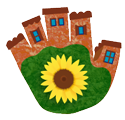Blogging has become a very important pillar in any (online) marketing strategy.
A blog can be a very powerful marketing tool for your business, your association, your ideas, it's easy to aggregate a lot of loyal fans and supporters.
In combination with social media, your blog will become a valuable tool to market your ideas, to get in contacts with interesting people and stay connected with them.
This tutorial provides you with a brief overview about blogging,
list the main points you should considder when blogging and a short video shows how to use this website for writing a blog.
What is a weblog?
A blog is a website where articles (blog posts) are regularly published, much like a diary. Important on a blog is the ability to post comments, and the accessibility of the article via a direct link (Permalink).
Blogs differ in content and form:
- a personal blog
- a co-operate blog, to campaign, to learn
- photo blog
- video blog
- by the use of a device (mobile blog)
Blogsoftware and devices
There are two possibilities:
- you host the weblog on your server with blog software like WordPress and you are free in your decisions but you need some technical knowledge
- you use a service, e.g. wordpress.com, but in that case possible changes and adaptations are limited, costs money, and you have to pay for implementing additional features (video, mp3,..)
A blog can configured to be used
- by one user only
- by many users
- in one language
- in multiple languages
Why blog?
A blog is an easy way to get in contact with your clients, employees, web site visitors.
Informally, you deliver information either about your company, products, innovations, ideas, etc.
In contrast to static web pages, a weblog is dynamic and therefore SEO friendly as search engines “love” regularly delivered new content. Also, a blog allows people to comment on your blog posts and you can comment back, making it a particularly useful platform for meaningful dialogue.
Blogs are about what you want to produce and show to a wider audience, so first of all, you write for yourself, because YOU
- have something to talk about
- enjoy writing
- want to reflect on your thoughts in public
- want to share your ideas and hobbies with others
- want to get in contact with like minded individuals
- want to market your products, build a brand
- want to start a dialogue with your clients
- have an expertise and you want to show and share it
- like engaging in debates with others and want to increase your network
How blog?
It's all about trust!
To build trust, you need to provide detailed background information about you as an author, including a good quality picture of you.
Check your spelling and grammar, link to trustworthy sources, enable sharing via social media and allow comments and discussions to your posts.
Publish regularly, include high quality pictures, videos and indicate content sources when used from others by respecting licenses.
There is a big noise in the web, people are sceptical and suffering from duplicated information and spam.
So first of all, what you are writing about should be original, not copied from other sources or redundant.
Think about the basic principles of communication:
- What do I want to show about myself?
- What information do I want to deliver?
- What do I want to achieve?
- What do I want to get back from my audience?
Form matters!
Choose a clear, uncluttered design for your website.
Use oratorical, short, precise headlines. They should contain keywords which characterizing your article.
Pay attention on concise sentences and a clear structure and editing. It makes it easier to read, understand and get in contact with your audience.
Blogs and social media
It is true, that Twitter and Facebook raised a greater attention than web logs, but in a blog you can create a fuller, more complex picture of yourself, your thoughts and competencies.
Your blog should be the central station from where you are sending around your messages by using Twitter, Facebook, Google+ a.o. within a couple of hours.
Services like Twitter, Facebook, Google+ are useful extensions in terms of disseminating your content. The same for media services like flickr, youtube and vimeo.
The garden-future website
We defined the following requirements:
- multilingual
- multi-user
- a blog per user (video)
- partners description, incl. Logo, URL
- a structure to publish multilingual tutorials with sub chapters
- a contact form
- statistic tool (Google Analytics)
- spam protection
- display of images and videos
- comments from users and visitors
- connection with the usual social media applications, sharing of content
- responsive design to be able to see the site on mobile devices
- just configured, no extra programming




Recent comments